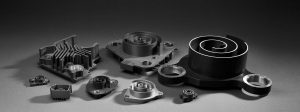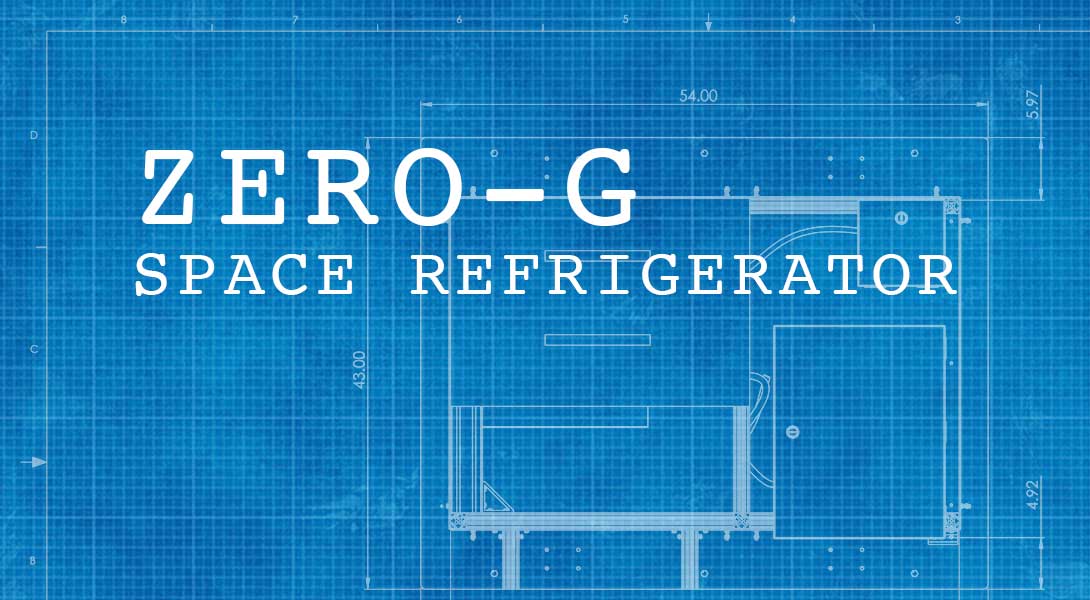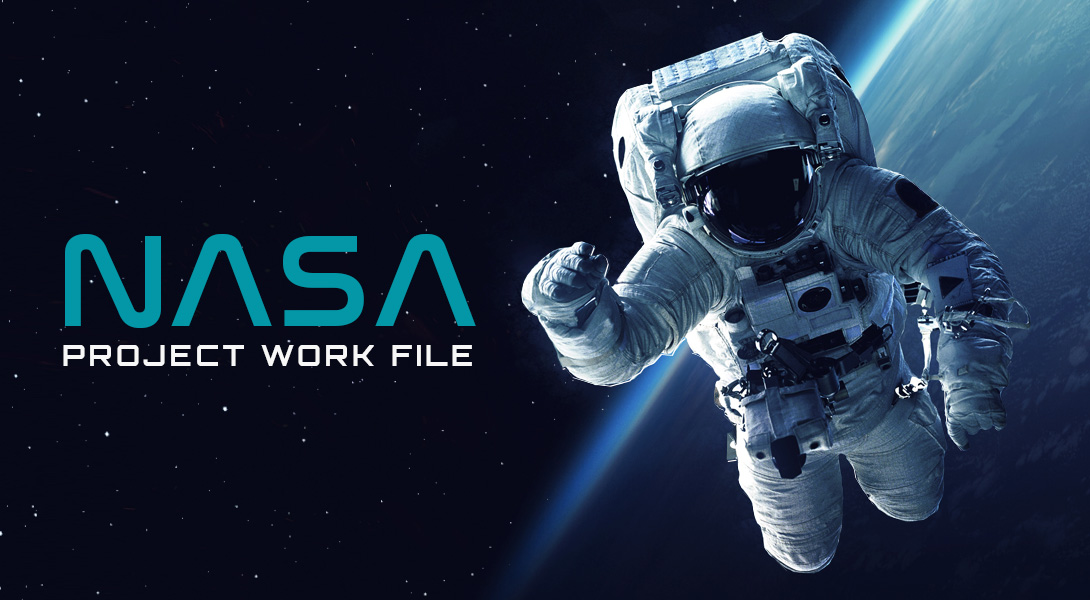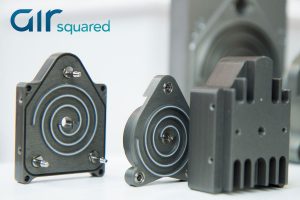Air Squared News
Space-Bound Refrigeration System Development Funded by NASA
Air Squared has been awarded a NASA Phase I SBIR to develop a cold storage foodstuff refrigeration system for space travel.
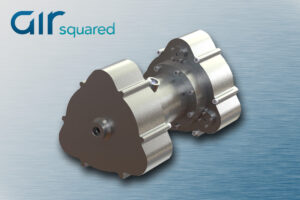
Broomfield, CO — The National Aeronautics and Space Administration (NASA) has awarded Air Squared Phase I Small Business Innovation Research (SBIR) funding to develop a scroll-based zero-gravity vapor compression refrigeration (ZVCR) system for improved cold storage in space travel. The award follows a 2017 solicitation under the Logistics Reduction (H3.04) subtopic that is part of the Human Health, Life Support and Habitation Systems (TA6) technology area.
Cold storage for research and scientific sampling on spacecraft has been successfully demonstrated, but conventional oil-based refrigeration units have fallen short of the size, weight, power, and performance specifications required by NASA. The pioneering ZVCR offers an alternative to thermoelectric cooling systems with poor efficiency, by transporting the benefits of well-understood terrestrial-based vapor compression refrigeration to the robust design heritage of scroll technology.
Unlike refrigerators on earth, to meet NASA specifications, the ZVCR will be ruggedly engineered to survive 6g axial and 2g lateral launch loads on takeoff. The ZVCR will also operate oil-free, maintain an efficiency coefficient of 3.5, and be capable of autonomously functioning for five years. To meet these ambitious goals, Air Squared will incorporate four innovations in the ZVCR:
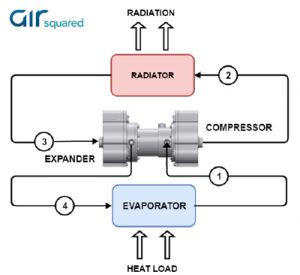
- Expansion work-recovery using a scroll expander
- Two-stage orbiting scroll compressor and expander
- Integrated compressor-expander design
- Oil-free scroll operation
The scroll expander will recover work, transferring it to the compressor to increase efficiency. A patented multi-stage scroll expander and compressor will be used to increase operating pressure ratios. To further minimize the footprint of the ZVCR and reduce weight, the compressor, motor, and expander are all integrated on a common shaft in a hermetic shell. Finally, to ensure the entire system can operate in any direction or orientation, all scroll components will be designed for oil-free operation. The four innovations work together to improve system efficiency, size, and weight.
About Integrated Scroll Expander-Compressor Technology
With patented integrated compressor-expander scroll technology from Air Squared, the scroll compressor and expander operate on a common shaft, allowing a single semi-hermetic shell to be used for all rotating components. The work recovered by the expander can be directly transmitted to the compressor, significantly improving efficiency. The integration of the compressor and expander not only makes the system more compact but also requires fewer components, (e.g., bearings, generator), which in turn reduces system weight and improves reliability.
About Multi-Stage Scroll Technology
The purpose of the multi-stage scroll technology is to help reduce the overall footprint of the device, while providing the same performance, or better, of a single-stage device. Multi-stage technology can be configured to run in series, parallel, or both within the same unit.
The primary benefit of two-stage technology is that the device has the same number of moving parts as a traditional single-stage design. This is accomplished by machining an additional involute on the back side of the orbiting scroll and adding a mating scroll on the housing.
About Air Squared
Air Squared is the industry leader in oil-free scroll design and manufacturing. By introducing a simple design with fewer moving parts, scroll technology has established itself as a highly efficient, very reliable, cost-effective alternative. Through a growing line of compressors, vacuum pumps, and expanders, Air Squared makes the many advantages of oil-free scroll technology available to OEMs worldwide.
This material is based upon work supported by a Phase I SBIR award by the National Aeronautics and Space Administration under the topic: Logistics Reduction (03.04). Any opinions, findings, conclusions, or recommendations expressed in this material are those of the author(s) and do not necessarily reflect those of the National Aeronautics and Space Administration.
UPDATE (June 4th, 2018) – Following a successful Phase I SBIR effort, Air Squared has been awarded Phase II SBIR funding from NASA and will continue development through 2020.
